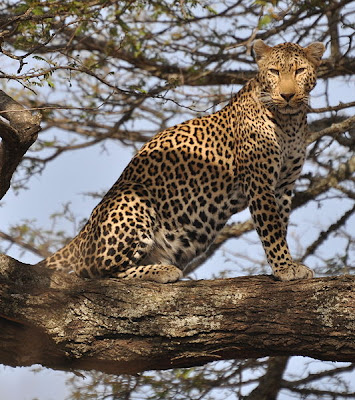Like most people, I’ve heard the expression that leopards don’t change their spots. It’s so commonplace that I can’t remember when I first heard it.
Here’s a picture of a leopard, with a characteristic, spotted coat.

Impressive.
I’d guess that if the photographer went back the next day, and took another picture, the spots would be in the same places. A week or month later, and the result would be the same: spots in place, not having moved.
One knows, though, that’s not what the expression means; the declaration is not about the outside of a leopard, but about its inside. The fundamental instincts of Panthera pardus don’t change, even through attempts at taming. A carnivore remains a carnivore; the taste for meat cannot be abated through circus training. The desire inside stays immutable.
One knows, too, that the expression isn’t really about leopards, but about men and women. It’s an underlying contention that human nature is immutable. There may be changes in a person’s life, moments that transform, to the betterment of the person. For the most part, though, many people stay the same.
They stay the same on account of a fundamental nature, but also from institutional and organizational cosseting — bolstered in narrow views, shielded from contrary points of view, encouraged to the point of being patronized — all a recipe for business as usual. Business as usual amounts to, and remains, business-as-self-interest, business-as-personal agenda, or business-as-status quo-defense.
One cannot fault a leopard for its unchanging appearance, or instincts; people-as-leopards, though, will always be a different, troubling situation.
The remedy, apart from personal transformation, is a society that allows, that encourages, free expression and debate. There will be no penultimate or ultimate moments in this debate, no final resolutions.
There is just the daily work of reading, reflecting, and writing. A good politics is an ongoing politics, and like it, good commentary is ongoing.
